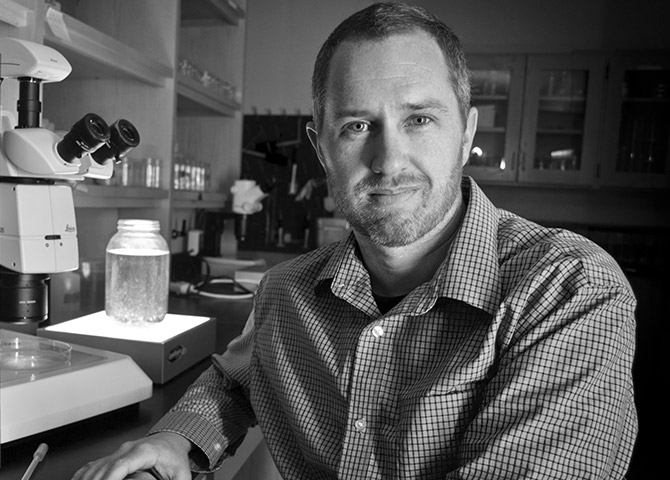It sounds like the beginning of a horror movie: Researcher hatches preserved water flea eggs that he found preserved in lakes located in a fallout zone of nuclear testing conducted in the 1950s. In reality, this water flea resurrection represents an important scientific study that could shed light on the long-term evolutionary impacts of nuclear testing.
“We have no real experimental sense of this, only the common belief of nuclear-induced mutation,” says Matthew Walsh, biology associate professor and co-principal investigator on the project, which is funded by a $200,000 grant from the National Science Foundation. “This allows us to look at nuclear genetic impacts across decades, study their effects in real time, and provide new insights into whether any nuclear-induced mutations degrade over time.”
Dr. Walsh collected the eggs from sediment cores found in a lake in Utah. After hatching the eggs, he will measure the viability and traits of the water fleas from before, during, and after the nuclear testing took place.
“In my doctoral studies, I became interested in the water flea as a vessel of investigation—they’re faster, smaller, and easier to work with in a lab, and the concept of resurrection is just remarkably cool,” he says. “It has been a longstanding goal of mine to leverage Daphnia in this way.”



